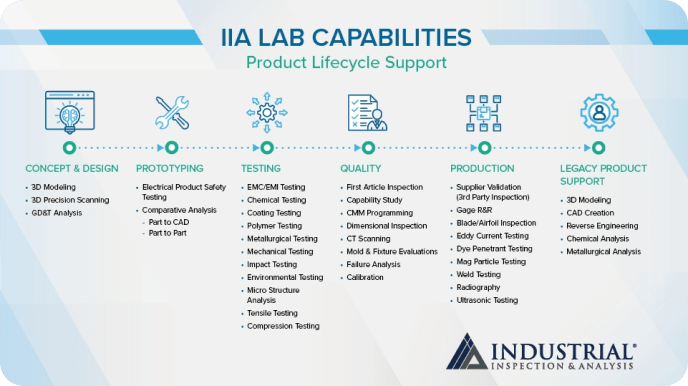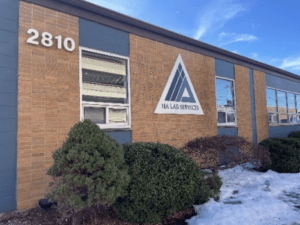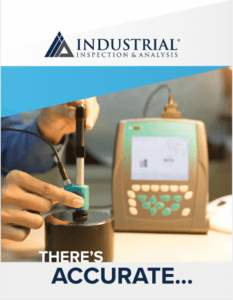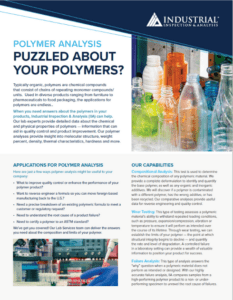Our lab services services experts have over 120 years of combined experienceChemical Testing
We are committed to providing fast, accurate, relevant, and reliable testing. Ensuring products are safe and meet all regulations is the only way to protect consumers and your good reputation. Partnering with IIA’s Lab Services ensures safety and success.
We help you answer these questions:

Talk To An Expert
Don’t see exactly what you are looking for? Or maybe you do and want more specifics or an estimate. Either way, you can call us at
470-264-5765
right now or just fill out the form below and we will respond back within 24 hours.
Composition Analysis
This test is used to determine what elements/compounds are in the material and can also determine how much of a particular element or compound is present. By testing a sample, IIA’s experts can identify the chemical composition of any alloy, polymer, or impurity.
Regulatory Testing
With IIA’s regulatory and compliance testing, our experts will help ensure that products are certified and meet all applicable health and safety standards. This includes taking every precaution to ensure that regulated substances, such as lead, heavy metals, and phthalates, if present are in acceptable concentrations. This is an important step to avoiding product rejection or recall at its destination.
- Phthalate Analysis
- Density / Specific Gravity
- Durometer Hardness
- Electrical Contact Resistance
- Vibration Testing
- Loss on Ignition
- Compositional Characterization of Unknown Substances
- Particle Size Analysis
- Wet Chemistry
Trace Contamination Testing
Even when every pre-manufacturing step has been properly followed, there are times when contamination occurs during production. This could be in the form of a chemical, a residue or a foreign particle that enters during production. When this happens, we use trace contamination testing to identify and quantify what is present. This process helps lead to the source and cause of any contamination, which means the source can then be eliminated.
Metals Testing
Our experts use this method to determine the composition of a metal and also of ores, slag, scrap, and much more. This test is also used to detect substances that can have a negative impact on the material’s strength and durability. Testing procedures consist of non-destructive and destructive methods, where a material can be broken down in order to identify its composition.
- Compositional Analysis of Metals / Metal Alloys (ICP or OES)
- Lead Analysis
- Carbon Analysis (Leco)
- Coating Weight
- Salt Spray or Humidity Testing
- Soluble Heavy Metals
- PMI Field/Lab Inspection (XRF)
Polymer Testing
Is this polymer contaminated? Has it been recycled? Does it have an incorrect additive? We provide a complete deformulation to determine the base polymer as well as any organic and inorganic additives. We can identify if a polymer is contaminated with a different polymer, has the wrong additive, or has been recycled. Our tests provide useful knowledge for Reverse Engineering and ensuring you have the correct material.
- Compositional Analysis of Elastomers / Polymers (plastics)
- Thermogravimetric Analysis (TGA)
- Differential Scanning Calorimetry (DSC)
- Fourier Transform Infrared Spectroscopy (FTIR)
- Pyrolysis-Gas Chromatography-Mass Spectrometry (Py-GC-MS)
- Energy Dispersive Spectroscopy (EDS)
- Melt Flow Index (MFI)
Unknown Materials characterization
Is this material supposed to be there? Chemical analysis to provide answers regarding the presence of unknown residue, powder, contaminant, or other impurity. Given our decades of experience in this field, we can typically determine the material and sometimes its origin.
Resources



Certifications and Guidelines
- ISO 17025:2017
- NADCAP AQS (AC7004)
- NADCAP Material Testing (MTL)
